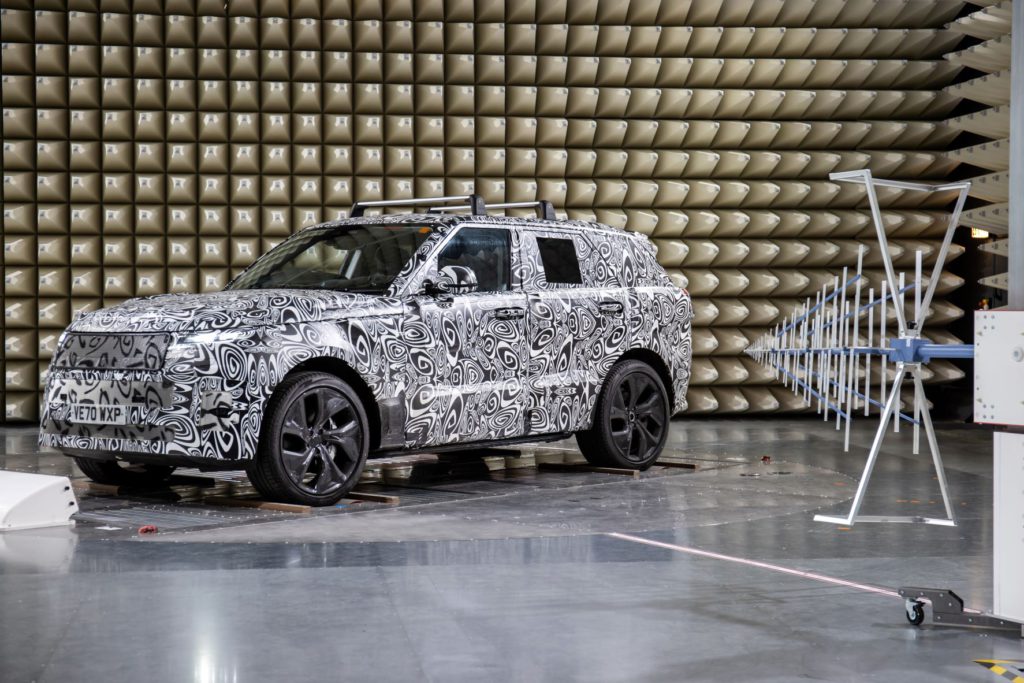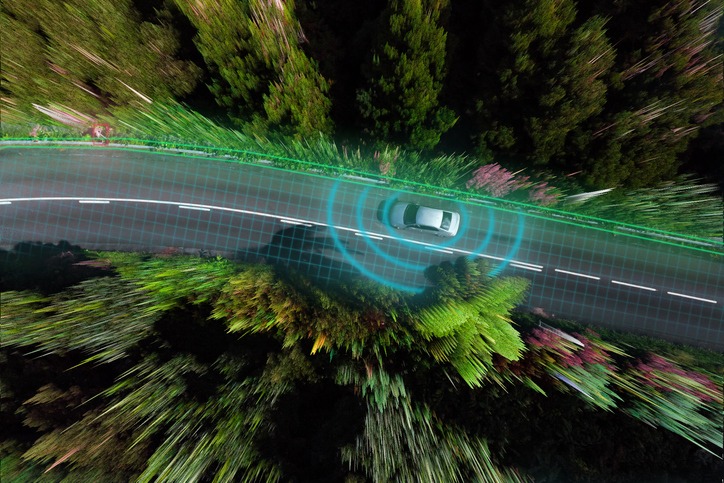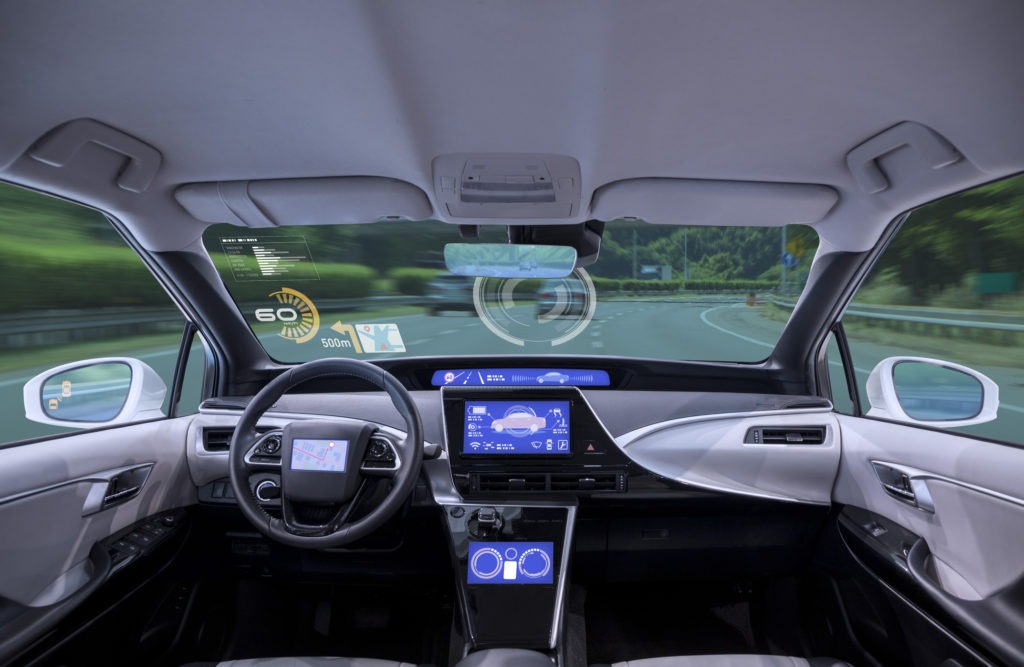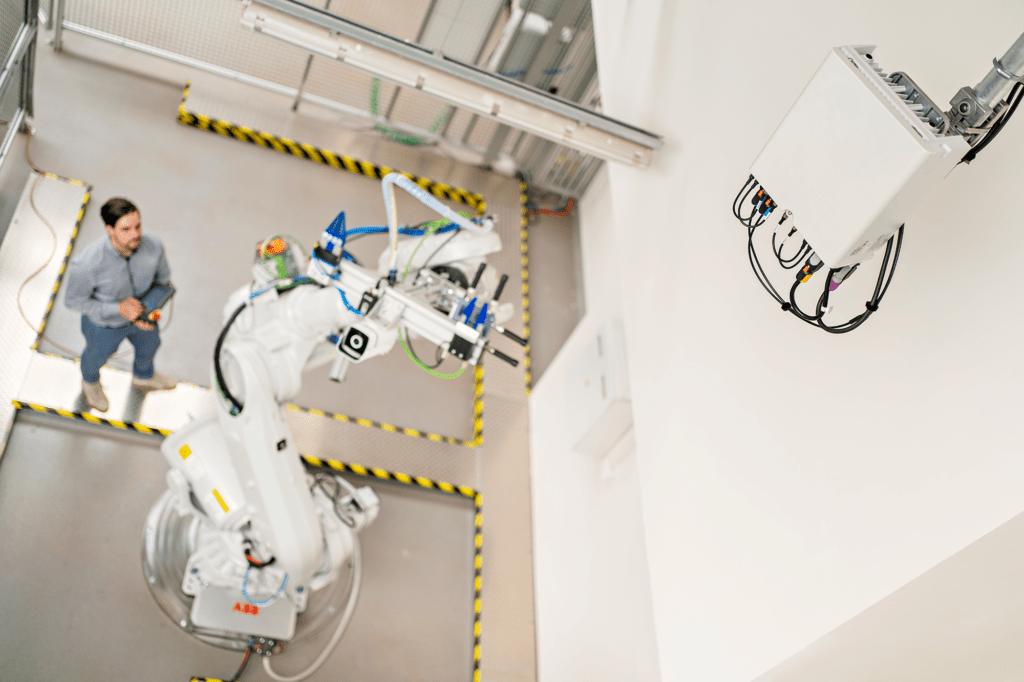Jaguar Land Rover focuses on electromagnetic compatibility
14 August 2022

Jaguar Land Rover (JLR) has opened the doors to a new UK-based facility. It will provide a base for the company’s wider automotive electrification and connectivity plans, as well as helping futureproof this technological framework.
Located in Gaydon, the electromagnetic compatibility (EMC) laboratory will ensure that JLR vehicles meet current and future legislation and quality standards for connectivity and electronics.
JLR sees EMC development as a critical aspect of automotive performance, and key to the development of future vehicles. The carmaker’s Range Rover Sport, which launched in May, was the first car to undergo a bespoke testing programme at the in-house facility.
EMC is the ability for electrical equipment and systems to function correctly in an electromagnetic environment. It works by limiting the unintentional generation, propagation, and reception of electromagnetic energy, reducing the risk of unwanted effects such as electromagnetic interference.
JLR’s new laboratory features two anechoic chambers and an electrically ‘quiet’ rolling road that enables engineers to test vehicles at speed. Additionally, the EMC is equipped to assess the performance of individual components such as batteries and electric motors. Connected elements including Bluetooth, GPS, WiFi, 4G, 5G, adaptive cruise control, wireless charging and blind spot monitoring will be tested for EMC at the site.
‘The importance of testing our vehicles for electromagnetic compatibility cannot be underestimated’ commented Peter Phillips, senior manager, electromagnetics and compliance at JLR. ‘Opening this new testing facility is an important step forward for the business and it will play a crucial role in helping us deliver quality, legal compliance, and customer satisfaction.’
Wider importance of EMC
Items spanning household appliances like washing machines and fridges, to public infrastructure from ATM machines and traffic lights all emit electromagnetic fields. These transmissions can potentially interfere with the functionality of multiple devices and infrastructure, using mediums such as Bluetooth, GPS, WiFi, 4G, 5G. JLR’s investment in the new bespoke facility is reflective of wider developments in the automotive world.
Electric powertrains, in-car digital and cloud-based services, over-the-air updates, autonomous technology is all now embedded into vehicles. JLR views testing for EMC as crucial to delivering quality, legal, and customer satisfaction. It aims to provide the most advanced in-vehicle connectivity as the business accelerates electrification through its Reimagine strategy.
The issue of EMC has gradually become an integral factor for car manufacturers to consider. Over the last 12 months, a range of carmakers have been linking up with technology and software companies to develop more connected vehicles.
Skoda has joined forces with technology-communications company Vodafone to develop a private mobile 5G network which will allow data to be locally transmitted, securely, and in real time. Central to the Czech automotive manufacturer’s ‘smart’ network is a private frequency spectrum, which is unique to the Mladá Boleslav facility in the Czech Republic. It enables reliable, wireless data transmission and guaranteeing sufficient bandwidth, even under high utilisation.
BMW inked an advanced driving-assistance systems (ADAS) deal with French automotive suppliers Valeo. Renault is working with multinational information technology service and consulting company Atos in a new data partnership, focused on collecting and structuring data to improve product quality.



